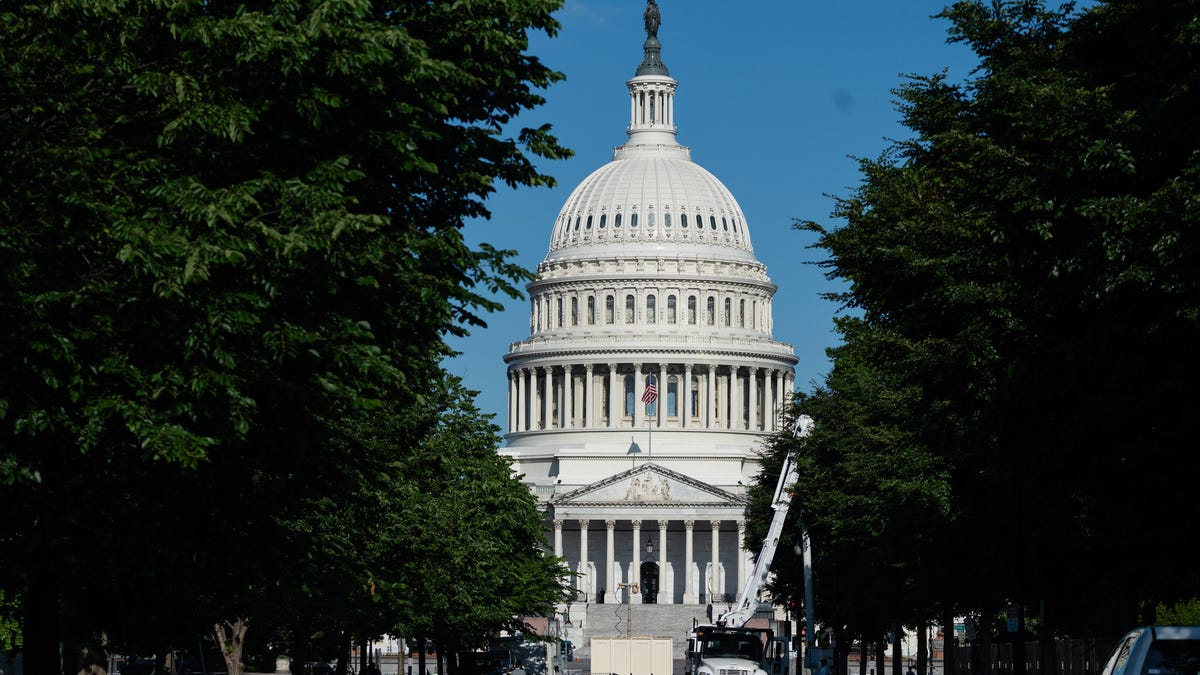 Why You Can Trust CNET
Why You Can Trust CNET Big Tech Spends Big Money to Thwart Antitrust Legislation

What's happening
Groups representing Big Tech giants are spending millions of dollars to torpedo a bipartisan effort to pass the most significant reforms to antitrust law in decades.
Why it matters
The proposed legislation would fundamentally change how companies like Amazon, Apple, Facebook and Google do business. Supporters of the legislation say it would help break up the monopoly power of these companies and allow new competitors to thrive.
As a bipartisan group of Capitol Hill lawmakers pushes for a summer vote on legislation that could usher in the biggest changes to antitrust law in decades, Big Tech companies are spending big money to stop them, says a Thursday report by The Wall Street Journal.
Since January 2021, groups representing the biggest names in tech, including Amazon, Facebook and Google, have spent at least $36.4 million on an advertising campaign to oppose antitrust legislation that would bar these companies and other platforms from favoring their own products and services over competitors, according to the Journal.
The bulk of the ad dollars, roughly $13.7 million, has been spent on television and internet advertising since May 1, according to data the Journal analyzed from AdImpact, an ad-tracking service. By contrast, groups supporting the legislation have spent about $193,000, the Journal said.
The spending has mostly been divided among industry trade groups and conservative-leaning groups, the Journal said. The trade groups include the Consumer Technology Association and the Communications Industry Association, which counts among its members Amazon, Google parent Alphabet and Facebook parent Meta. The conservative groups include the Taxpayers Protection Alliance and NetChoice.
Mostly, these ads have been airing in key states and districts of lawmakers who may be undecided on the legislation. These advertisements generally characterize the bill as contributing to inflation, weakening America's competitive edge against China, or hurting consumers and small businesses.
The ad campaigns come as many on Capitol Hill expect the Senate to vote this summer on the American Innovation and Choice Online Act, which was introduced last October by Sens. Amy Klobuchar, a Democrat from Minnesota, and Chuck Grassley, a Republican from Iowa. Versions of the bill in the House and Senate have advanced out of both chambers' judiciary committees with bipartisan support.
The Senate version advanced earlier this year. The House bill advanced nearly a year ago, along with five other proposals aimed at curbing the power of these giant tech platforms. In 2020, the House Judiciary subcommittee on antitrust published its 450-page report concluding that Amazon, Apple, Google and Facebook use their monopoly power to stifle competition. The legislation also has support from US President Joe Biden's Justice Department as well as the Commerce Department.
If passed and signed into law, the legislation would mark the most meaningful change to antitrust law in decades. It would force changes in how big tech companies do business and how their products operate, and it could even break up companies. The tech platforms oppose these measures and argue that such laws will actually mean fewer choices for consumers and higher prices for products.
Supporters of the legislation say larger technology platforms have too much power and can easily run smaller competitors out of business. They argue that restrictions on these platforms is needed to help ensure that smaller companies can compete.
Alphabet, Amazon and Apple have publicly opposed the legislation. Last week, Amazon published a blog slamming the proposed legislation. Google published a blog on Tuesday criticizing the bill.
Meta hasn't taken a public stance on the legislation.
The bill's sponsors held a press conference Wednesday to push for a vote. Grassley said big tech companies were "spending tens of millions of dollars on ads and front groups to spread falsehoods about our bill."
Rep. David Cicilline, a Democrat from Rhode Island, has championed the bill in the House. He called the advertisements and criticism of the bill "lies coming from Big Tech."
"This legislation does not undermine our national security or American economic competitiveness, far from it. It strengthens our national security and our competitiveness," Cicilline said. "Competitive free markets are a key source of American economic strength, and a core pillar of our national security. This legislation promotes fierce competition, which is the best way to ensure the United States continues to be the most innovative, dynamic economy in the world."
Klobuchar said that in spite of the attacks, the bill has the necessary votes to pass the Senate.
"We have momentum despite all the money being spent against us," she said.
Senate Majority Leader Chuck Schumer, a Democrat from New York, hasn't yet scheduled a vote on the bill.

